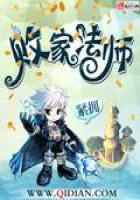1. The Dead Know not Anything. -- As a sample of the way the Bible speaks upon this question, let the reader turn to the words of Solomon, in Eccl. 9: 5, 6, 10: "For the living know that they shall die: but the dead know not anything, neither have they any more a reward; for the memory of them is forgotten. Also their love, and their hatred, and their envy, is now perished; neither have they any more a portion for ever in anything that is done under the sun. . . . Whatsoever thy hand findeth to do, do it with thy might; for there is no work, nor device, nor knowledge, nor wisdom, in the grave, whither thou goest."This language is addressed to the real, living, intelligent, responsible man; and how could it be Page 44 plainer? On the hypothesis of the commonly believed distinction between the soul and the body, this must be addressed to the soul; for the body considered as the mere material instrument through which the soul acts, is not supposed of itself to know anything. The body, as a body, independent of the soul, does not know that it shall die; but it is that which knows, while one is alive, that it shall die -- it is that same intelligent being that, when dead, knows not anything. But the spirits in Spiritualism do know many things in their condition; therefore they are not those who have once lived on this earth, and passed off through death; for such, once dead, this scripture affirms, know not anything -- they are in a condition in which there is "no work, nor device, nor knowledge, nor wisdom." This is a plain, straightforward, literal statement; there is no mistaking its meaning; and if it is true, then it is not true that the unseen agents working through Spiritualism, are the spirits of the dead.
2. The Spirit Returns to God. -- Another passage from the same writer and the same book, may recur to the mind of the reader, as expressing a different and contradictory thought. Eccl. 12: 7. "Then shall the dust return to the earth as it was: and the spirit shall return unto God who gave it." A careful analysis of this passage reveals no support for Spiritualism;for it does not say that the spirit, on returning to God, is conscious, or is capable of coming back and communicating with mortals. It is not denied that different component parts enter into Page 45 the constitution of man; and that these parts may be separated. Solomon himself may therefore tell us what he means by the term "spirit" which he here uses. He employs the same word in chapter 3: 21 of this same book, but says that beasts have it as well as men. And then in verse 19, he explains what he means, by saying that they (man and the lower animals) all have one breath. The record of man's creation in Gen. 2: 7, shows that a vitalizing principle, called the "breath of life," was necessary to be imparted to the organized body, before man became a living being;and this breath of life, as common to man and to all breathing animals, is described in Gen. 7: 21, 22, by the term [ HEBREW CHARACTERS IN PRINTEDTEXT ] ( ruahh ), the same word that is used for "breath," in Eccl. 3:19, "spirit," in verse 21, and "the spirit," which God gave to man, and which returns to God, in chapter 12: 7. Thus it is clear that reference is here made simply to the "breath of life" which God at first imparted to man, to make him a living being, and which he withdraws to himself, in the hour of man's death. Job states the same fact, and describes the process, in chapter 34: 14, 15:
"If he [God] set his heart upon man, if he gather unto himself his [man's] spirit [same word] and his breath; . . . man shall turn again unto dust." No one can fail to see here that Job refers to the same event of which Solomon speaks.
And at this point the question may as well be raised, and answered, "Whence comes this spirit which is claimed to be the real man, capable of an Page 46 independent and superior existence without the body? Bodies come into existence by natural generation; but whence comes the spirit? Is it a part of the body? If so, it cannot be immortal; for "that which is born of the flesh is flesh." John 3: 6. Is it supplied to human beings at birth? If so, is there a great storehouse, somewhere, of souls and spirits, ready-made, from which the supply is drawn as fast as wanted in this world? And if so, further, is it to be concluded that all spirits have had a pre-existence?
and then what was their condition in that state? And again, how does it happen, on this supposition, that this spirit in each individual exhibits so largely the mental and moral traits of the earthly parents? These hypotheses not being very satisfactory, will it be claimed that God creates these spirits as fast as children are born to need them? and if so, who brings them down just in the nick of time? and by what process are they incarnated?
But if God has, by special act, created a soul or spirit for every member of the human family since Adam, is it not a contradiction of Gen. 2: 2, which declares that all God's work of creation, so far as it pertains to this world, was completed by the close of the first week of time?
Again, how many of the inhabitants of this earth are the offspring of abandoned criminality; and can it be supposed that God holds himself in readiness to create souls which must come from his hands pure as the dew of heaven, to be thrust into such vile tenements, and doomed to a life of wretchedness and woe at the bidding of Page 47 defiant lust? The irreverence of the question will be pardoned as an exposure of the absurdity of that theory which necessitates it.
3. The Spirits of Just Men Made Perfect. -- This expression is found in Heb. 12: 23, and seems, by some, to recognize the idea that spirits can exist without the body, and are to be treated as separate entities.
Thus interpreted it might appear to give some support to Spiritualism.















